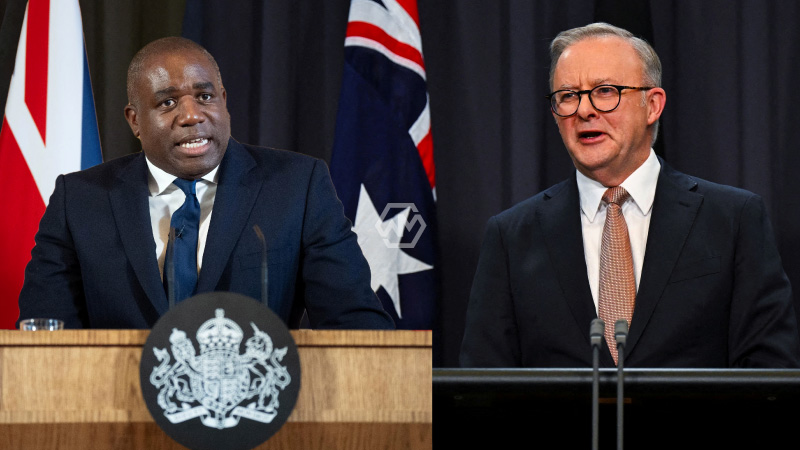- US launches airstrikes on Iranian nuclear facilities under Operation Midnight Hammer.
- Australia and the UK stress diplomacy to prevent wider regional escalation.
- Concerns grow over Iran’s nuclear ambitions and potential retaliation.
In a bold military move, the United States carried out targeted airstrikes on Iranian nuclear sites over the weekend, citing national security threats and non-compliance with global nuclear agreements.
Responding to the unfolding crisis, Australian Prime Minister Anthony Albanese called on all parties to prioritize “dialogue, diplomacy, and de-escalation.”
Diplomacy or Destruction: World Leaders React to US Strikes on Iran
UK Foreign Secretary David Lammy also expressed deep concern, advocating for a diplomatic resolution to prevent a wider crisis. After holding discussions with US Secretary of State Marco Rubio, Lammy reaffirmed the UK’s commitment to regional stability, stating that “cooperation with allies” remains central to resolving the issue peacefully. His comments come amid rising fears of retaliatory actions by Iran or proxy groups in the region.
The strikes have reignited global debate over Iran’s alleged pursuit of nuclear weapons. Despite Iran’s insistence that its nuclear program is for peaceful purposes, intelligence reports cited by Western leaders suggest otherwise. The sites targeted in Isfahan, Fordow, and Natanz have long been suspected of hosting uranium enrichment and other covert nuclear activities. International watchdogs have called for transparency and resumed inspections.
Meanwhile, Israel’s continued strikes on Iranian-linked targets further compound the tension, risking a multi-front confrontation. With the potential for escalation stretching across Iraq, Syria, and Lebanon, global powers are urging all actors to exercise restraint. The UN Security Council is expected to hold an emergency session to address the rising threat of regional conflict.
Public sentiment across the globe appears divided. While some support the US action as a necessary preventive measure, others fear that it sets a dangerous precedent. Peace organizations and non-aligned nations have renewed calls for a revived nuclear deal and enhanced diplomatic frameworks to prevent long-term destabilization in the Gulf region.
As military operations unfold, the path forward remains uncertain. Yet amid the smoke of missile strikes, voices calling for diplomacy are growing louder—reminding the world that peace cannot be enforced, it must be negotiated.
“Peace is not absence of conflict; it is the ability to handle conflict by peaceful means.” – Ronald Reagan



